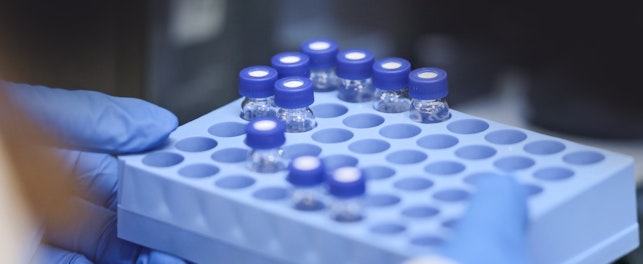The global paper-based packaging market was worth USD 416.5 billion in 2022, but by 2028, it is expected to reach USD 503.1 billion. 1 Demand is driven in part by consumers wanting greater reuse and recyclability from the products they use.
Packaging is important. It does more than just protect products; it also provides information about the contents and messaging about quality – high-quality packaging equates to a high-quality product in the mind of the consumer.
A primary growth area for paper-based packaging is food contact packaging. The food contact packaging sector as a whole, incorporating all material types, is expected to grow from USD 331 billion in 2021 to USD 478 billion in 2028, with much of that growth predicted to be in the emerging markets of Asia and Latin America.
Paper-based packaging constitutes the largest share of this market, with primary drivers being its adoption as a packaging material for a wide range of readily eatable foods, fresh vegetables and beverages, and its inherent sustainability.2
Sustainability
50% of consumers now view sustainability as a ‘top 5 value driver,’ with 34% saying they are willing to pay more for sustainable products and services.3 This push towards sustainability does not end with the product, it also includes the packaging.
We are all more aware than ever before of the negative impacts of some packaging materials. Governments, industry and consumers are alert to the issues surrounding packaging waste, especially single-use plastics, and are actively looking for alternatives.
Paper-based packaging makes a sensible alternative. There is a lot more to paper-based packaging than just paper bags. It can be formed into a variety of packaging types, including corrugated cardboard, folding cardboard boxes, pulp molded packaging, cartons, mailers/pouches and cushioning.
Also, consumers appreciate the advantages of paper-based packaging, such as:
- Widely recyclable
- Often contains recycled materials
- Bio-based – sourced from renewable plant materials and not fossil fuels
- Better biodegradability
- Can be made compatible with industrial composting
- Facilitates food composting – easier channeling of food waste to composting
Global initiatives
Governments around the world are introducing legislation to encourage packaging recycling and the use of more sustainable options. For example, the US Environmental Protection Agency (EPA) has an Environmentally Preferable Purchasing (EPP) program to encourage federal agencies to buy more sustainable products.4 Similarly, Australian Federal Procurement Rules say packaging materials must contain at least 50% recycled materials, with paper packaging having a recycling content of 60%.
As consumers and government authorities push for more sustainable packaging options, the industry needs to respond in a way that is trusted and transparent. The only way to ensure paper-based packaging conforms to required standards for safety, performance and sustainability is through independent testing and audits.
SGS Solution
We provide a comprehensive range of safety, performance and sustainability testing and certification services to help manufacturers gain commercial advantage in competitive global markets for paper-based packaging products.
Sustainability testing solutions cover:
- Recyclability – INGEDE 11 & 12 Grant No:4CE555P3
- Ecotoxicity & biodegradability (for paper products containing plastics) – ISO 14855-1:2012; GB/T 19277.1-2011; ASTM D5338-15(2021)
- Industrial compostability – EN 13432; ASTM D6400; GB/T 28206
- Recycled content – paper (secondary fiber analysis), plastics
- Over-packaging evaluation – GB 23350
- Plastic-free assessment
Performance testing includes:
- Tensile properties – ASTM D828-16; AS NZS 1301.448S:2007; GB/T 12914-2018; ISO 1924-2-2008; ISO 1924-3:2005
- Corrugated fiberboard glue bonding area water resistance test – FEFCO Testing Method No. 9
- Corrugated board edge compression test – GB/T 6546/2021
- Quantitative measurement – ISO 536:2021; GB/T 451.2-2002
- Moisture control – GB/T 462-2008
- pH test – GB/T 1545-2008 Method A/B
- Grease/oil resistance – TAPPI T559, ISO 16532-1, GB/T 22805.1
- Water absorption – TAPPI T441, ISO 287, GB/T 1540
- Hygiene tests – EN 1104, GB 4806.8, GB/T 5009.78
- Transit tests – ISTA procedures, ASTM D4169, NMFC Item 181
We also offer assessments against a variety of paper/wood certification schemes, including Forest Stewardship Council® (FSC®), Programme for the Endorsement of Forest Certification (PEFC) and Sustainable Forest Initiative (SFI).
SGS Green Mark
Consumers need to trust a product is truly sustainable. Manufacturers need to avoid the risk of greenwashing by having their product claims independently verified by a trusted organization.
The SGS Green Mark shows a product has been independently verified as meeting its attributed claims. It can be used on a wide variety of products, including paper-based packaging, and provides clarity to all customers, whether they are end-consumers or next tier suppliers.
Each claimed attribute is evaluated in accordance with specific protocols, with assessments often using specific ISO test methods and the standards governing:
- Environmental labels and declarations — Self-declared environmental claims (ISO 14021)
- Conformity assessment — Fundamentals of product certification and guidelines for product certification schemes (ISO 17067)
The assessment considers market legislation and the environmental claims the manufacturer wishes to make. These might include industrial compostable, recycled content, biodegradability or bio-based materials (if the paper-based packaging contains plastics).
Certified products are then eligible to carry the SGS Green Mark, which has multiple advantages for both manufacturers and consumers.
For manufacturers:
- Provides third-party credibility to single-attribute environmental claims, facilitating trust and confidence.
- Differentiates their product in markets where greenwashing may be a problem.
- Enhances their brand image by showing their commitment to the environment.
- Builds confidence in their products.
- Allows them to select the positive environmental attribute most relevant to their product, enabling focused communications.
- Reduces costs by having a centralized testing and certification process.
For consumers, it makes it easier to identify a product that is sustainable and conforms to their requirements.
Learn more about SGS packaging services, specialized testing services for paper, nonwovens and packaging industries and the SGS Green Mark.
Enjoyed this article?
Find more news and updates in our Consumer Compact newsletter >
Delivered direct to your inbox
Subscribe to Consumer Compact >
References
1 Paper Packaging Market Size, Share, Trends & Demand 2023-2028 (imarcgroup.com)
2 Food Packaging Market Size, Growth and Industry Trends [2028]
3 Global Sustainability Study 2021: Initial insights (simon-kucher.com)
4 Recommendations of Specifications, Standards, and Ecolabels for Federal Purchasing | US EPA
© SGS Société Générale de Surveillance SA.
All India business enquiries helpline
Local site contact number
SGS House,
4B, Adi Shankaracharya Marg, Vikhroli (West),
Mumbai, Maharashtra, 400 083,
India












